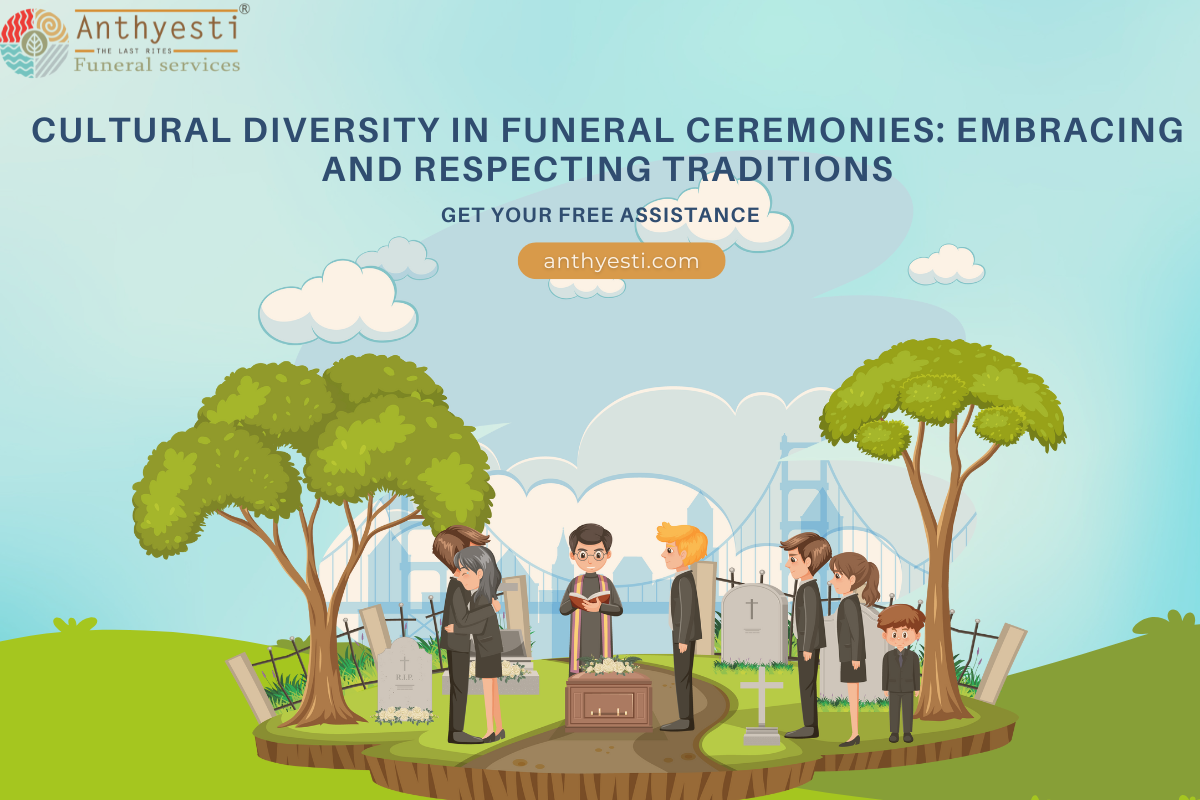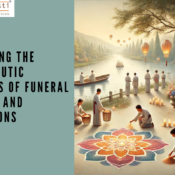
Cultural Diversity in Funeral Ceremonies: Embracing and Respecting Traditions
Funeral ceremonies hold a significant place in every culture around the world. They serve as a final farewell, a rite of passage, and a means to honor and remember the departed loved ones. However, the ways in which these ceremonies are conducted vary greatly from one culture to another. The concept of cultural diversity in funeral ceremonies, with a particular focus on Anthyesti funeral services, and the importance of embracing and respecting traditions.
Understanding Anthyesti Funeral Traditions:
Anthyesti, derived from the Sanskrit words “Antya” meaning “last” and “Yesti” meaning “sacrifice”, refers to the funeral rites performed in Hindu culture. These rituals are deeply rooted in ancient traditions and are guided by religious beliefs and cultural customs. Anthyesti ceremonies are multifaceted, involving various rituals and practices that aim to guide the departed soul to the afterlife while providing solace to the grieving family members.
Embracing Diversity:
One of the most beautiful aspects of Anthyesti funeral traditions is their adaptability and inclusivity. While the core rituals remain consistent, the ceremonies can be tailored to accommodate the diverse cultural backgrounds and beliefs of the individuals involved. This adaptability is reflective of the broader concept of cultural diversity, where different customs and practices are respected and embraced.
Respecting Traditions:
Respecting traditions is fundamental in Anthyesti funeral services. Each ritual and practice holds deep significance and is performed with utmost reverence. From the chanting of sacred mantras to the lighting of funeral pyres, every aspect of the ceremony is steeped in tradition. By respecting these customs, individuals not only honor the deceased but also pay homage to their cultural heritage.
Cross-Cultural Influences:
While Anthyesti funeral traditions are deeply rooted in Hindu culture, they have also been influenced by various other cultural and religious practices over time. This cross-cultural exchange has enriched the funeral ceremonies, adding layers of diversity and complexity. For example, in some regions, elements of Buddhism or Jainism may be incorporated into Anthyesti rituals, reflecting the diverse religious landscape of India.
Celebrating Life:
Despite the somber nature of funeral ceremonies, Anthyesti rituals also emphasize the celebration of life. Through prayers, hymns, and offerings, individuals express gratitude for the time spent with the departed and celebrate their legacy. This celebration of life is a universal theme found in funeral ceremonies across cultures, highlighting the resilience of the human spirit in the face of loss.
Community Support:
Anthyesti funeral ceremonies are not just about bidding farewell to the departed; they are also about community support and solidarity. Family members, friends, and neighbors come together to offer condolences, share memories, and provide emotional support to the grieving family. This sense of community is integral to the healing process and underscores the importance of collective mourning in times of loss.
Adapting to Modern Times:
While Anthyesti funeral traditions have been practiced for centuries, they continue to evolve and adapt to modern times. In today’s globalized world, individuals may find themselves navigating multiple cultural identities, leading to hybrid funeral ceremonies that blend traditional customs with contemporary practices. This adaptation is a testament to the resilience of cultural traditions in the face of change.
Conclusion:
Cultural diversity in funeral ceremonies, particularly in Anthyesti traditions, serves as a poignant reminder of the richness and complexity of human culture. By embracing and respecting these traditions, individuals not only honor the departed but also celebrate the diversity of human experience. In doing so, they uphold the values of inclusivity, compassion, and reverence for cultural heritage, ensuring that funeral ceremonies remain a meaningful and transformative experience for generations to come.
Contact us +91-98833-18181
All Categories
- Ambulance (6)
- Anthyesti Biopic Cinema (11)
- Blogs (330)
- Condolences (8)
- Cremation Center (10)
- Cremation Service (58)
- Dead Body Carrier (20)
- Dead Body Freezer Box (49)
- Dead Body Transport (132)
- dead body van (3)
- Death Ceremony (8)
- FAQ (18)
- Freezer box (20)
- Funeral Communities (10)
- Funeral Service (53)
- General (5)
- hearse van service (48)
- Last Rites Pujas (2)
- Last Rites Rituals (10)
- Media Mentions (9)
- Pind Daan (1)
- Pitru Paksha (3)
- Pre Planning Funeral (11)
- Priest Funeral Service (1)
- Shraadh Rituals (3)
- Uncategorized (3)
- Vaikunta Samaradhane rituals (1)
- We are in News (19)





